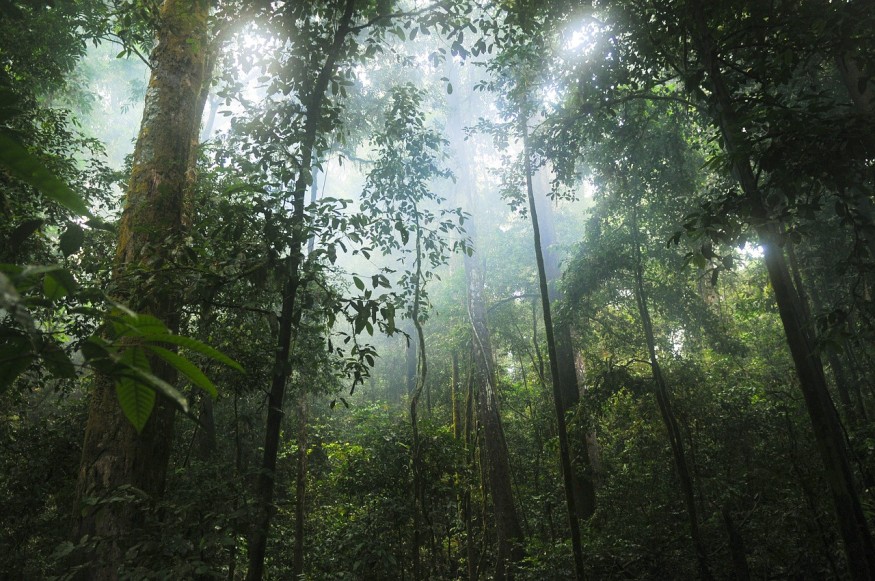
A new study published in the journal Science says that tropical forests are able to store carbon in large amounts even in a world warmed by climate change, as long as greenhouse gas emission will be curbed. Their trees alone have 25 years' worth of fossil fuels stored in them, but if global warming will reduce tree growth or kill them, further warming can occur, and we will all be in peril.
Researchers from countries in three continents assessed more than 500,000 trees found in over 800 forests in the tropical regions. They collaborated to see the amount of carbon the trees stored under various climate conditions.
The study revealed how these forests still store a lot of carbon despite higher temperatures, with a long-term daytime temperature threshold of up to 89.6ºF. However, the trees need time for adaptation in new conditions.
Manchester Metropolitan University and University of Leeds lecturer and lead author Martin Sullivan said that their analysis showed surprisingly temperature-resistant tropical trees and forests. However, heat beyond the threshold will cause rapid forest carbon losses.
Carbon dioxide is released when carbon lost from tree decay, and death is higher than the carbon stored from the growth and reproduction of trees. The study points to temperature as the factor which will most greatly affect forest carbon storage, while drought is the second most crucial variable.
Scientists believe that tropical forests can adapt to a certain level of climate change due to their abundant biodiversity. Tree species that can tolerate new conditions better will replace less adaptive ones.
Brazil's Mato Grosso State University professor and co-author Beatriz Marimon noted that intact forests could withstand some climate change, though they are vulnerable to fragmentation and fire. She adds that above the heat threshold, forest carbon quickly declines regardless of tree species. For every degree above the threshold, four times more carbon dioxide would be released.
The research team is comprised of 225 scientists from Asia, Africa, and South America. They monitored tree diameter and height to determine the amount of carbon stored. After a few years, they repeat their measurements to determine the resulting carbon intake and the amount of time the trees stored them before dying.
Almost 10,000 species of trees and more than two million diameter measurements were made in 24 nations in the tropics to determine carbon storage changes.
University College London and University of Leeds professor Simon Lewis said that the carbon stored in trees is critical in Earth's response to warming. Their study, he says, points to the need for long-term collaboration in research to understand climate change's effects.
University of Leeds professor and author Oliver Phillips says that reducing carbon emissions is challenging. He says that after the current pandemic crisis ends, humanity has the chance to start again and allow tropical forests to store large amounts of carbon. Biosecurity will require the protection of forests from deforestation as well as stopping the exploitation of wildlife. Doing so will let us cool our planet and make the world safer for us to live in.
© 2025 NatureWorldNews.com All rights reserved. Do not reproduce without permission.





